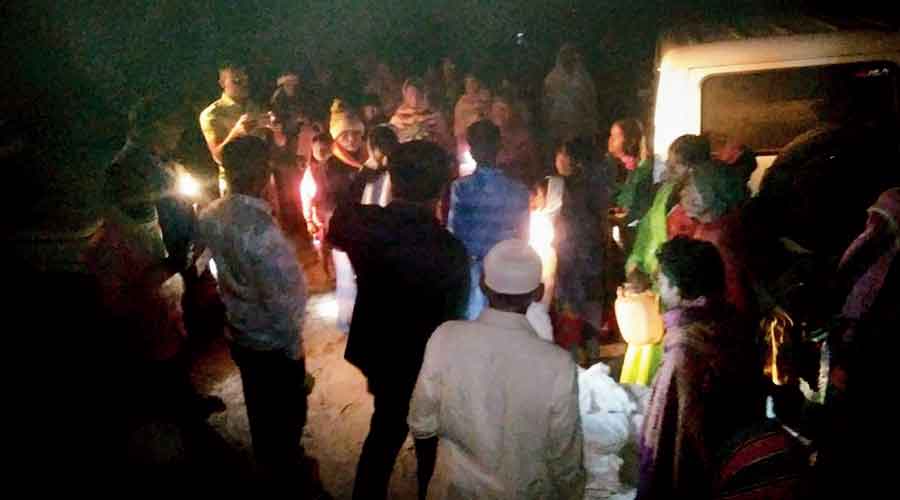The Garhwa district administration in Jharkhand arranged distribution of foodgrains to the Particularly Vulnerable Tribal Group (PVTG) around 9pm on Friday in a village nearly 22km from the Meral block headquarters of the district.
The distribution was carried out after it was brought to the notice of the in-charge district supply officer, Vijendra Kumar, around 5pm on Friday that the group had been denied its share of grain and the community members were borrowing grain from others.
On Saturday, The Telegraph had published a report narrating the plight of the Korwa families, among the eight PVTG on the verge of extinction in Jharkhand, at Brahmani hamlet of Kushmahi village under Meral block of Garhwa district, nearly 240km from state capital Ranchi.
Over 30 families had to borrow foodgrains from relatives during Diwali as they were bereft of their share enshrined under the National Food Security Act for the month of September, October and November (food distribution is done by the fifth of every month).
However, the reaction of the Garhwa district administration has not spared them notice from the Jharkhand State Food Commission (constituted under the National Food Security Act for monitoring and reviewing the implementation of the act in each state).
“After going through the report published in The Telegraph, I have sent a letter on Saturday to the Garhwa deputy commissioner (Rajesh Pathak) to reply within seven days clarifying the reasons for the denial of the foodgrains to the PVTG and what action has been taken against those responsible for this callous act. We will wait for seven days and if there is no reply from the district administration, I would personally visit Garhwa for an on the spot probe into the incident and submit a report to the national commission,” said Himanshu Shekhar, the chairperson of Jharkhand State Food Commission.
The secretary of food, public distribution and consumer affairs, Himani Pande, appreciated the response of the PVTG villagers.
“I knew about the irregularities through the news report. I appreciate the consciousness of the villagers in refusing to take lesser grains from the dealer. I had called up the deputy commissioner to ensure that foodgrains are distributed properly to the PVTG and other people. In fact, people should be encouraged to adopt one nation, one ration card (allows ration card holders to claim foodgrains from any fair price shops anywhere in the country through existing ration cards through biometric or Aadhar card authentication),” Pande said.
The Garhwa deputy commissioner said action would be taken against the guilty.
“As of now, the government offices are closed for Diwali. We will start a probe into the episode and action would certainly be taken against those found guilty. We distributed the October month foodgrains last night and would also distribute the September and November allotments to the villagers,” Pathak said.
Under the Antodaya Anna Yojana scheme, subsidised food is distributed to the poorest of poor having the yellow ration card. In Jharkhand, under the scheme, a beneficiary is entitled to 35kg of rice, 1 litre of kerosene oil, 1kg of salt and 1kg of sugar each month.










